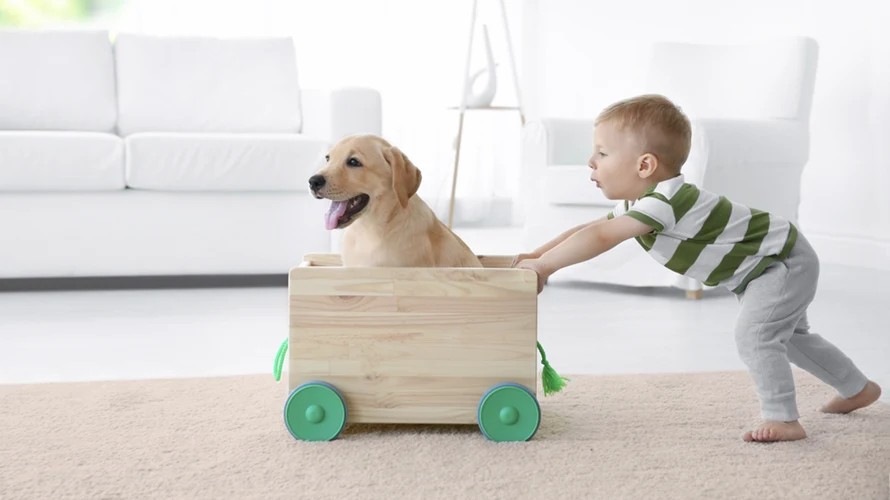What to expect your first week with a puppy
The first week of owning a puppy is exciting but also challenging as your new companion adjusts to their environment and routine. Here’s what to expect and how to navigate this critical time:
1. Adjustment Period
- Nervousness and Shyness: Your puppy may feel overwhelmed by new sights, sounds, and smells. They might hide, whine, or appear hesitant.
- Separation Anxiety: Puppies may miss their mother and littermates, especially at night, leading to crying or restlessness.
2. Sleepless Nights
- Nighttime Whining: Puppies are not used to being alone. They may cry at night when placed in their crate or sleeping area.
- Frequent Potty Breaks: Expect to wake up every 2–4 hours for bathroom breaks, as puppies have small bladders.
3. Potty Training Challenges
- Accidents Will Happen: Be patient as your puppy learns where to go. Establish a consistent potty schedule and reward successes.
- Frequent Breaks: Take your puppy out after waking up, eating, playing, and before bedtime.
4. Bonding and Socialization
- Building Trust: Spend quality time with your puppy to help them feel secure. Gentle play, cuddles, and hand-feeding can help.
- Introducing Family Members: Allow your puppy to meet family members calmly to avoid overwhelming them.
5. Feeding and Nutrition
- Consistent Meals: Stick to the food your puppy was eating before and gradually transition to a new diet if needed.
- Frequent Meals: Puppies usually eat 3–4 small meals a day. Follow your vet’s recommendations based on their age and breed.
6. Training Begins
- Start Simple Commands: Teach basic commands like “sit” and “come” using treats and praise.
- Crate Training: Introduce the crate as a safe, positive space. Use treats and toys to encourage your puppy to spend time in it.
7. Exploration and Curiosity
- Chewing and Biting: Puppies explore the world with their mouths. Provide appropriate chew toys to prevent them from gnawing on furniture or shoes.
- Supervised Exploration: Allow your puppy to explore their new home under supervision to prevent accidents and injuries.
8. Health and Vet Visit
- Schedule a Vet Appointment: Take your puppy for a check-up within the first few days. Bring any vaccination or medical records.
- Parasite Prevention: Discuss flea, tick, and deworming treatments with your vet.
9. Energy Bursts and Naps
- Playtime: Puppies have short bursts of energy followed by long naps. Ensure they have safe toys to keep them occupied.
- Rest is Essential: Puppies need 18–20 hours of sleep per day to support their growth.
10. Patience and Consistency
- Set a Routine: Puppies thrive on predictability. Establish a schedule for feeding, potty breaks, playtime, and sleep.
- Stay Calm: Adjusting to a new home is overwhelming for a puppy, so remain patient and positive.
By the end of the first week, your puppy will begin to feel more comfortable in their new home, and you’ll start building a strong bond that will set the foundation for a happy life together.



Leave a Reply
Want to join the discussion?Feel free to contribute!